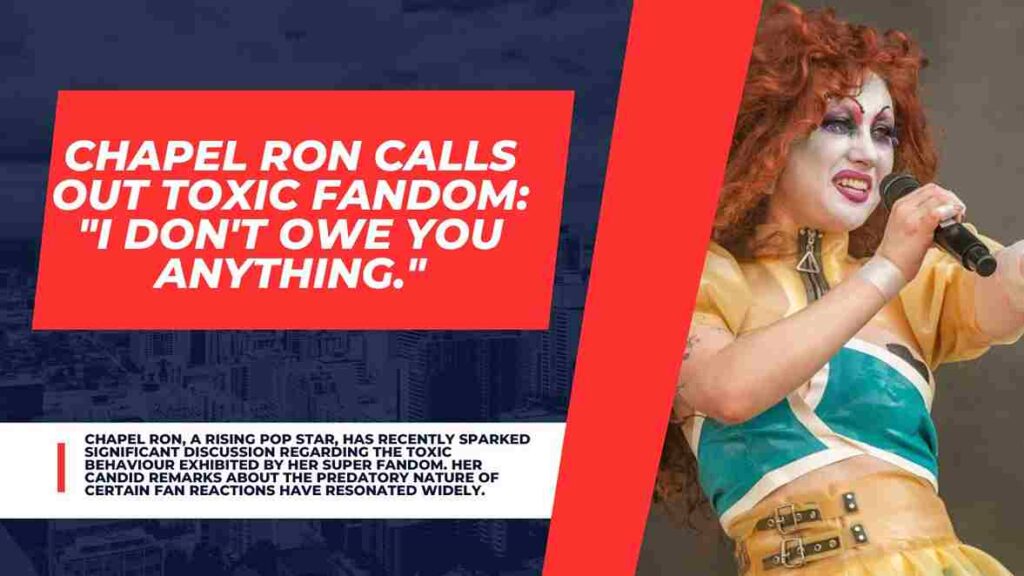Chappell Roan, a rising pop star, has recently sparked significant discussion regarding the toxic behaviour exhibited by her super fandom. Her candid remarks about the predatory nature of certain fan reactions have resonated widely.
She addresses the dark matter of mega fame, which threatened to cast a shadow over her success. She highlights a troubling trend in celebrity culture where boundaries are often disregarded.
In August she posted two TikToks and now it has grown to over 30 million times. She is now calling out the “creepy behaviour” and telling fans to respect her boundaries.
She also wrote on Instagram, “Women don’t owe anything,” after facing abusive behaviour from one of her fans who grabbed and kissed her in a bar.
She told Glamour Magazine, “It’s such an interesting world we live in where everyone wants to see you who are on social media, but there’s this dilution that they know you and that they can tell you anything.”
She took a bold step to tell The Face magazine she might quit the music industry if the harassment of her and those closets didn’t subside. She describes the fam as “the vibe open abusive ex-husband.”
She emphasized that such interesting behaviour, including stalking and nonconscious touching, should not be normalized and should not be accepted under any circumstances.
At Meet-and-Greet LGBTQ fans highlighted she has helped a lot to come out experiences, and she said, “My music has helped a lot of people through that trauma, and I love that, but personally, as Kayleigh, I can’t handle that responsibility.”
Roan’s comment has sparked a mixed reaction among fans and the public While many support her stand on sitting boundaries, others have criticized her for not reciprocating the energy they feel entitled to as far.
This backlash reflects a border issue within fan culture where parasocial relationships and intense emotional attachment fans develop towards celebrities lead to unrealistic expectations and toxic behaviour.
Lily Waite a trans woman tells BBC News, “The majority of fans are wonderful, earnest, and respectful, but those are not the fans she is addressing or referring to her videos asserting boundaries.” A queer, 35-year-old Rebecca Clark suggests Ron’s background in the drug and queer scene has left her more “exposed on the worldwide stage.”
Still, Clark backed her and said, “She is self-aware enough to have seen what’s happened in the past to the pop star and actively set a boundary for her fans as the first massively out female pop star since Lady Gaga, She’s amazing, but again, that does not mean she owes fans a personal one-on-one; she’s just a person too.”
Paramore singer Hayley Williams highlights, “This happened to every woman I know from this business myself included, and social media has made this odds. I’m thankful Chappell is willing to address it at this perfect time.
It’s brave and unfortunately necessary.” Author of Toxic, a book exploring female superstardom over recent decades, marked “a tipping point” in celebs openly saying fans are crossing a line.
The brand MONA expressed solidarity with Roan, describing the current state of fan interaction as “truly scary” and indicative of a larger problem within celebrity culture. This sentiment underscores the need for systemic change in how fans engage with artists.







